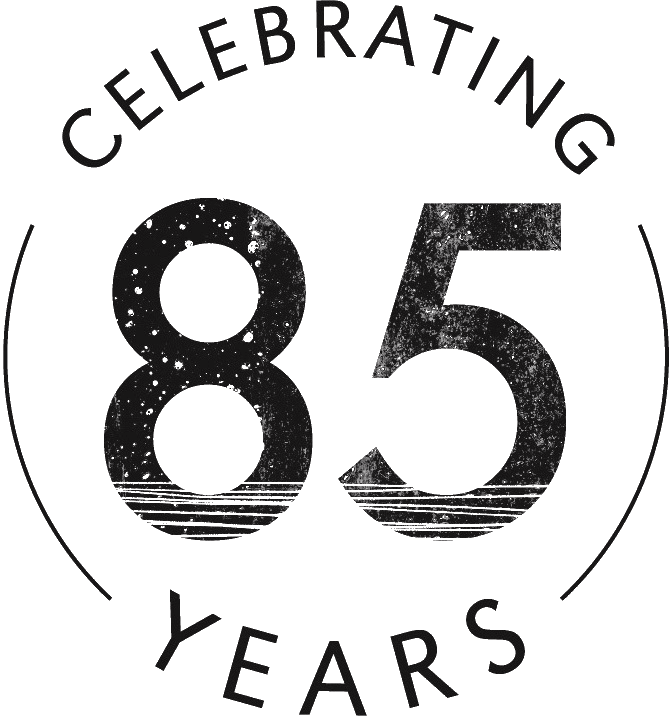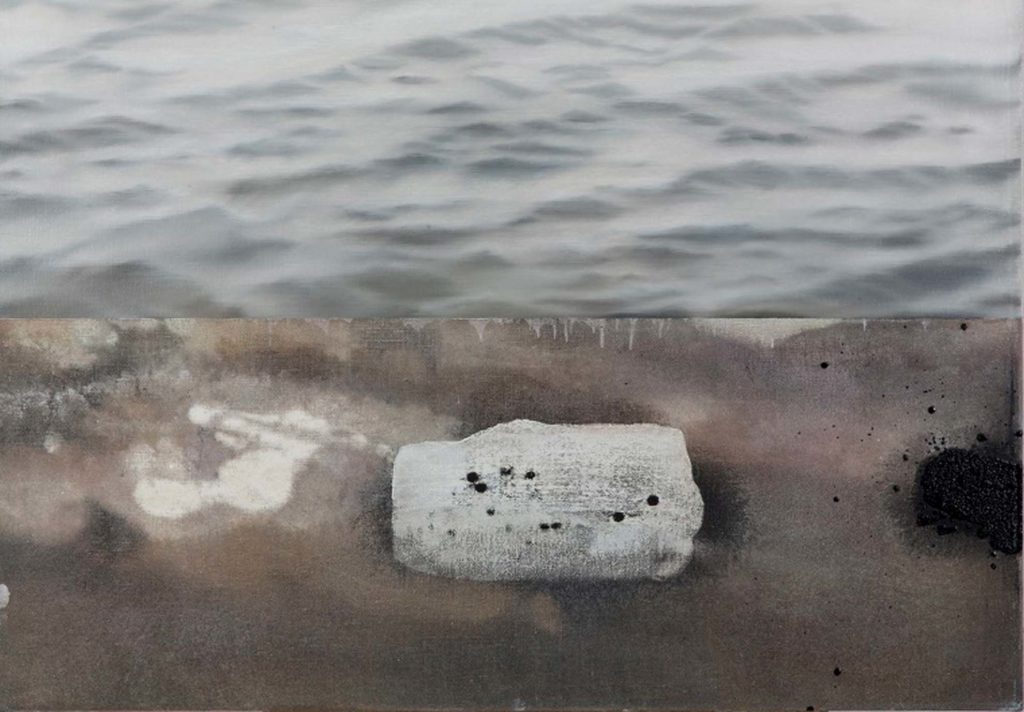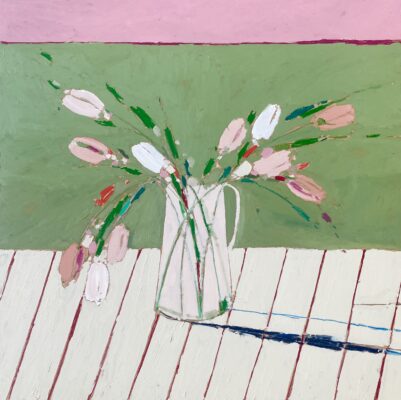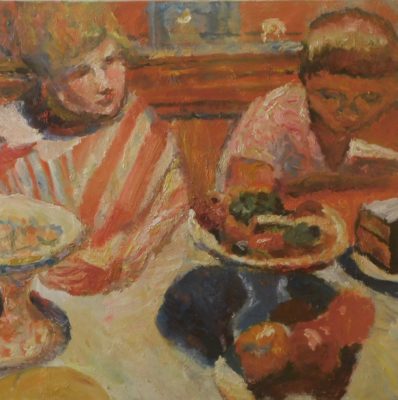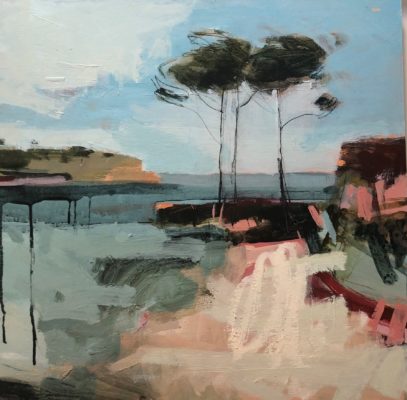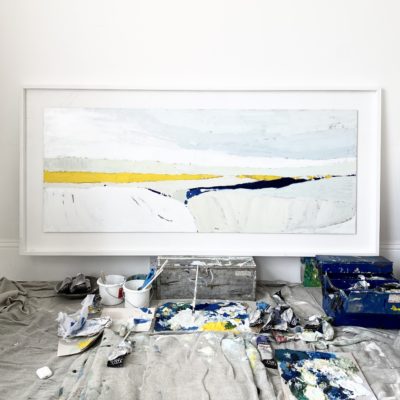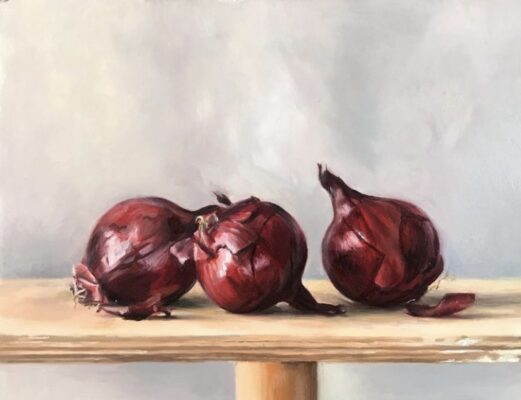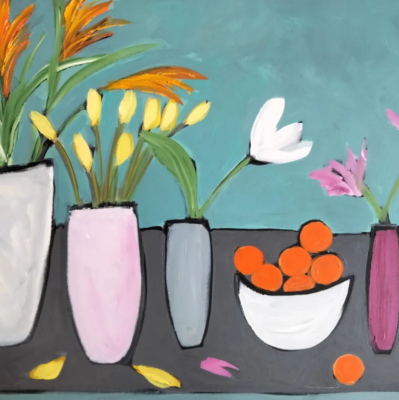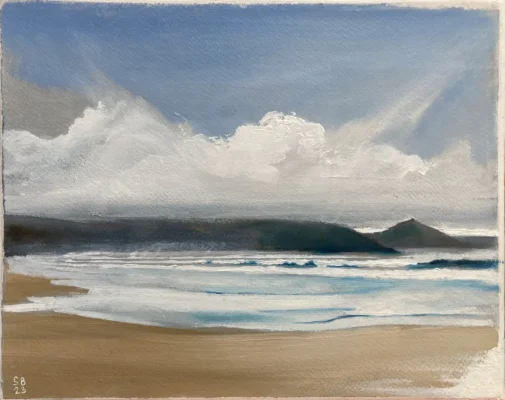This website uses cookies so that we can provide you with the best user experience possible. Cookie information is stored in your browser and performs functions such as recognising you when you return to our website and helping our team to understand which sections of the website you find most interesting and useful.
Course details
This dynamic course explores the boundaries between representation and abstraction. Extend your painting vocabulary through a series of structured exercises, manipulating paint and image in a fun and experimental way.
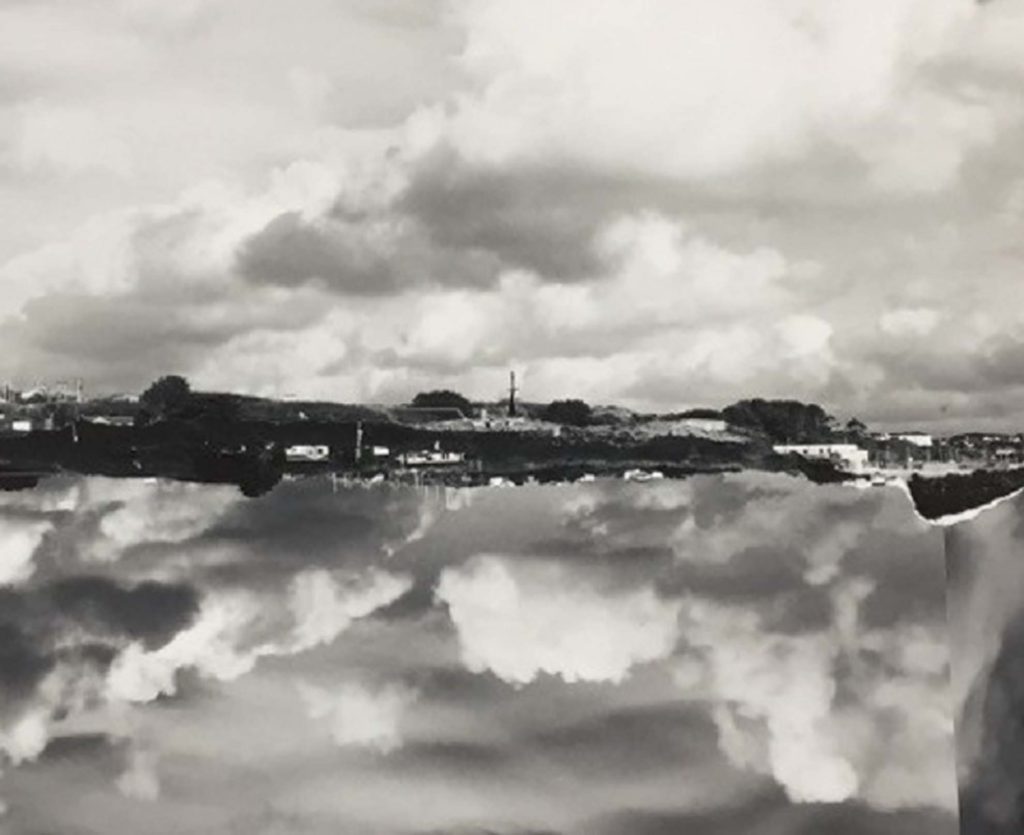
Exercises will include observational painting, blending, manipulation of paint with a variety of tools, expressive mark marking, dragging, also using brushes on sticks. You will explore how to work directly on to found images and your own photographs to create paintings.
Learn to develop and work from your own source material. In the later part of the course you will have the freedom to explore a very personal approach to painting using the experience gained from the paint manipulation exercises.
The contemporary artist Gerhard Richter, an inspirational, of great diversity will be your primary reference. Diversity defines Richter paintings. His work ranges from photo-realism to pure abstraction with both figurative and scenic elements throughout. This course aims to give a broad overview of Gerhard Richter vast exploration of painting, examining some of his approaches in detail.
Day to day plan
This is a rough indication of what to expect over the course. However sometimes the structure of the days may alter depending on the nature of the group, weather and the days each tutor leads.
Day 1
Observation and Representation.
Start with a simple still to create a series of small, observational paintings, using a limited palette with specific constraints. Repeat these exercises using the St Ives landscape as a source material, either from direct observation or printed images. Explore experimental mark making, focusing on some of the techniques employed by Gerhard Richter.
Day 2 & 3
Combining observation with abstract mark making
Combine the mark making and paint manipulation techniques you have experimented with directly onto simplified versions of the observational paintings from day one. You will work on a series of small paintings using the structure of specific goals and methods to stretch your skills of paint application and image creation.
Day 4
Painting on photographic images
Students will apply the mark making approaches explored with Kerry directly onto photographic images using magazines in the studio, as well as their own source material. There will be a studio visit in the morning to Marion Taylor’s studio at Porthmeor Studios who’s own recent practice uses this technique. Extend this approach through photo montage and combining paint manipulation techniques.
Day 5
Developing your personal approach
The last day of the course will allow you to select and combine your favourite subjects and techniques to develop your own approach. Marion will support each student through one to one discussions to find a direction that best suits them.
What will I learn?
- Knowledge of how to manipulate paint in different ways with a range of unconventional tools and increased confidence in expressive mark making.
- An ability to use playfulness to unlock my personal creativity.
- A series of structured exercises to use to break out of habits that will make my work more dynamic and intuitive.
- An appreciation of the diversity of techniques and styles available to create arresting images
- A deeper understanding of the techniques of Gerhard Richter you can take home and use in your own painting.
Who would this course suit?
This course would suit you if you have some experience of painting. More important however is an openness to experimentation. It is a particularly exciting course if you enjoy trying new things and have an interest in contemporary painting. Ideal for artists looking to extend and expand their painting vocabulary, but appropriate for anyone with an open mind and a desire to experiment and develop skills and push their own boundaries.
Taught by
What to Bring
Our studios are fully equipped and we provide you with all the materials you need for your course. However, if you have a favourite set of brushes or any specialist materials that you would prefer to use, please bring them with you.
Timings and Breaks
The first day starts at 10am and finishes at 4.30pm, please aim to arrive ten to fifteen minutes before the start time.
All course days after that start at 9.30am and finish at 4pm and there will be an hour for lunch. There are plenty of nearby places to eat and we will serve tea and coffee at break times during the day.
FAQs
Studio Courses
How can I get help in choosing a course?
Our friendly expert staff are always happy to discuss your needs and our courses in more detail to help you with your decision. Please call us on 01736 797180
How do I get my work home?
Tutors have special techniques for transporting oil paintings and the school has plastic folders available in our shop for £3.50 or do bring a portfolio.
For international students we are happy to arrange transportation of your work back home.
What do I need to bring?
Absolutely nothing! All materials and aprons are provided although some people do like to bring their own set of brushes.
What do I do for lunch?
Courses allow an hour’s break for lunch and there are numerous places nearby or you are welcome to bring a packed lunch into the studio.
What times do courses run?
Most of our courses start at 10am and end at 4.30pm on the first day. Subsequent days we start at 9.30am ending at 4pm.
Weekend Courses run 10am – 4pm on the first day but the final day starts at 9.30 and ends at 3.30 with a short lunch break to enable people to get home that evening.
Do you have to be experienced to come to the School?
The School is a very friendly and welcoming place for all ages and experience. Our drop-in life classes and August half-day workshops are ideal for those wanting to have a go for the first time. Most of our longer courses are also fine for novices.
If any of the courses do need a bit of experience we flag this up in the brochure and on the website.
Booking a Course
How can I reserve a place?
We will hold a provisional reservation for 24 hours if you give us a call whilst you find accommodation. Otherwise please book online or by telephone 01736 797180.
You can reserve a place with a £100 deposit; balance is due 12 weeks before course start date.
About St Ives
Where do I park?
The nearest long stay public car parks are the Island and Barnoon Long Stay Car Park, both a 5 minute walk away. In the peak summer months it may be easier to park at Trenwith Car Park by the leisure centre and walk down into town. If you don’t fancy the walk up the hill at the end of the day there is a shuttle bus which runs from outside the cinema.
How do I get there?
Public Transport: If you are coming from further afield the main train line runs into St Erth which is a 15 min taxi ride away or you can take the St Ives Bay Line which runs approx. every 30 minutes. The School is a 10 minute walk from St Ives station.
Driving: M5 will take you to Exeter where we recommend that you take the A30 across Bodmin Moor and into Cornwall. After passing Hayle, leave the A30 at St Erth roundabout for St Ives. Turn right at the second roundabout. This road will take you through Lelant and Carbis Bay into St Ives.
Where can I stay?
St Ives has a huge selection of hotels, guest houses and self catering accommodation to choose from. Please browse the art holidays St Ives section on our website and give us a call if you would like any help.
